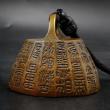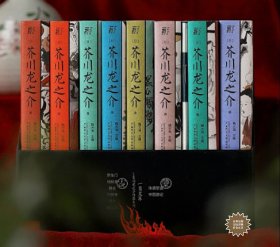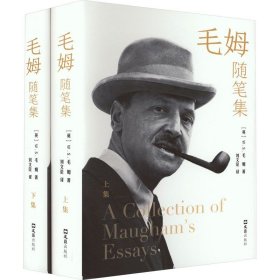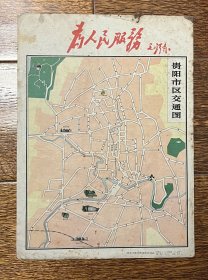
Genghis khan
¥ 58 八五品
仅1件
上海徐汇
认证卖家担保交易快速发货售后保障
作者John Man
出版社Oversea Publishing House
ISBN9780553814989
出版时间2005-07
装帧平装
尺寸19.9 × 12.9 cm
纸张胶版纸
页数430页
正文语种英文
货号A2009294
上书时间2009-06-04
- 在售商品 暂无
- 平均发货时间 23小时
- 好评率 暂无
- 店主推荐
- 最新上架
商品详情
- 品相描述:八五品
- 商品描述
-
romBooklist
Manposits that this engrossing book is the result of his ambition totravel to somewhere remote, and that Mongolia, China, and the GobiDesert are such places. He maintains that secrecy is an importanttheme of the book: how and where Genghis Khan died, and how andwhere he was buried. Man chronicles the early history of Mongolia,the coming of the Mongols' conquests of China and other Asiankingdoms, and what he calls the Muslim holocaust. He cites that"there were 100,000 to 150,000 soldiers, each with two or threehorses . . . they could cover 100 kilometers a day, cross deserts,swim rivers, and materialize and vanish as if by magic." He saysthat prisoners had a triple use: as a slave labor force of spe*tartisans, as soldiers in the army's nonnomadic contingents, and as"cannon fodder." Genghis Khan fell seriously ill, perhaps withtyphus, and died in 1227, and not much is certain about his burialsite; the record is, according to the author, "infuriatinglyvague." George Cohen
Copyright ?American Library Association. All rights reserved --This textrefers to an out of print or unavailable edition of thistitle.
"'Absorbing and beautifully written...he [Man] conjures up anancient people in an allen landscape in such a way as to make themlive...a thrilling account' - GUARDIAN 'First-rate...lively andargued with elan...a fine introduction to the subject, as well as arattling good read' - INDEPENDENT 'A fine, well-written andwell-researched book' - MAIL ON SUNDAY 'An eloquent account, notonly of a fascinating historical figure and his people, but of theresonance of history itself' - WBQ magazine 'Enthralling andcolourful' - INDEPENDENT ON SUNDAY"
"Absorbing andbeautifully written . . . A thrilling account."—The Guardian(U.K.)
"Man hasscholarly gifts as well as an acute intelligence and a winning waywith words. This is a fine introduction to the subject, as well asa rattling good read."—The Independent (U.K.)
"Every bit asgripping as its subject deserves. History doesn't get much moreenthralling than this."—York Evening Post (U.K.)
"Chaucer laudedGenghis Khan in his Canterbury Tales, while others have comparedhim to Satan (sometimes to Satan's advantage). In this livelyvolume, historian and travel writer Man presents parallel yetconflicting views of the imperialist and Mongolian national hero.The Great Khan unified the nomadic Mongols, destroyed obstructiveempires, built the largest land empire in history, opened tradefrom Japan to Europe, and in general made way for the modern world.His tactics included murderous but focused terror, multiculturalstatesmanship, and sheer energy (DNA studies estimate that hisgenes are in eight percent of the men of Eurasia)."—LibraryJournal
— 没有更多了 —





















以下为对购买帮助不大的评价